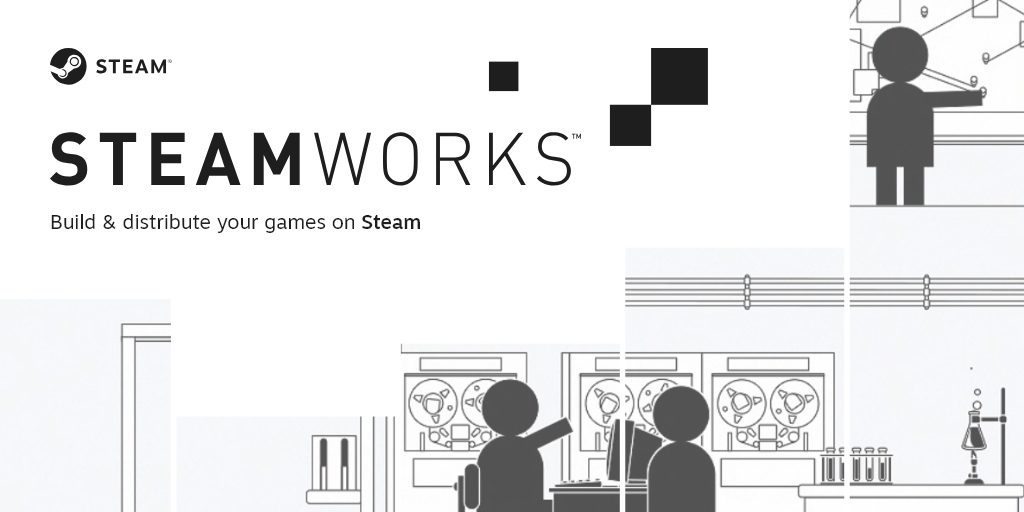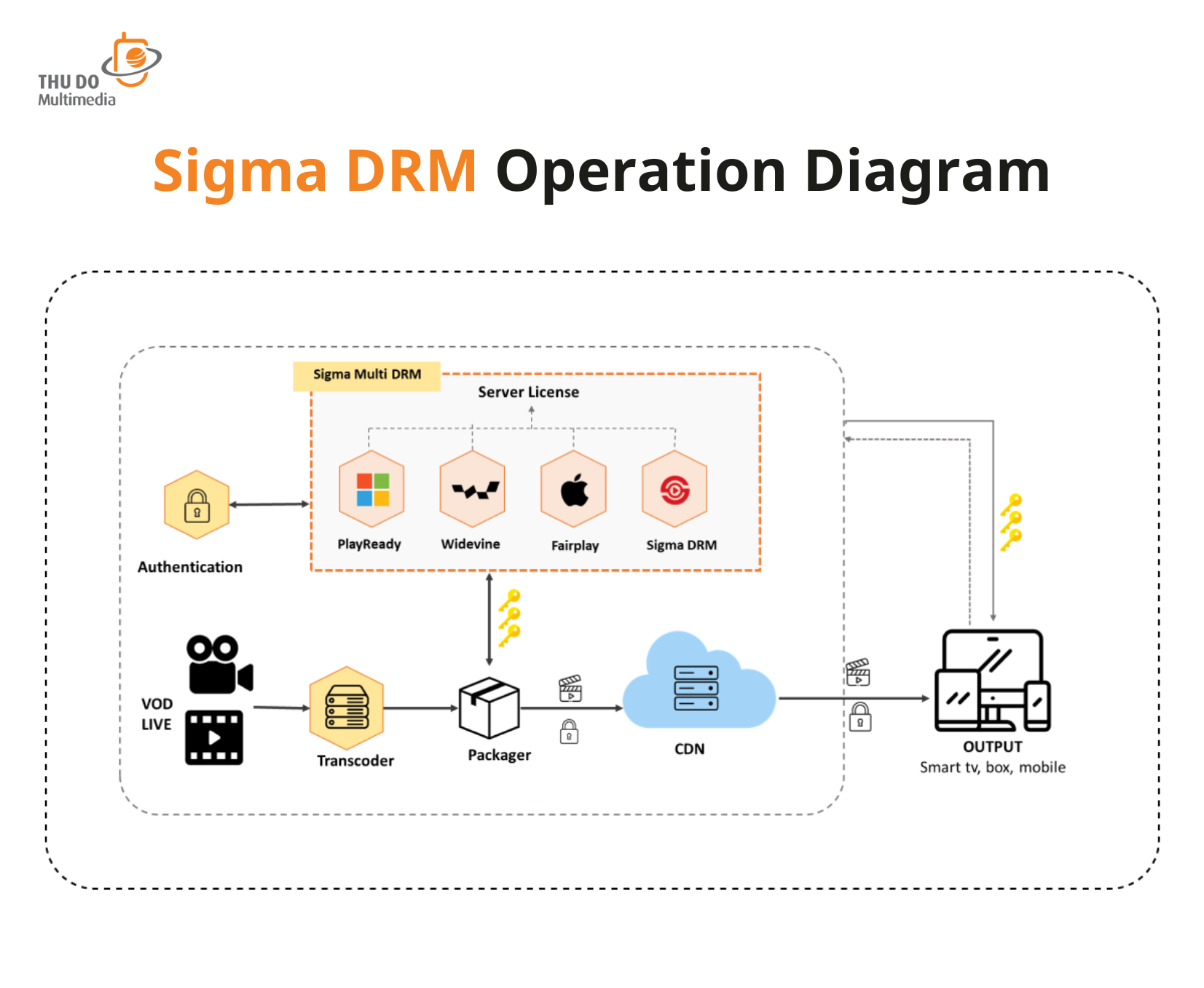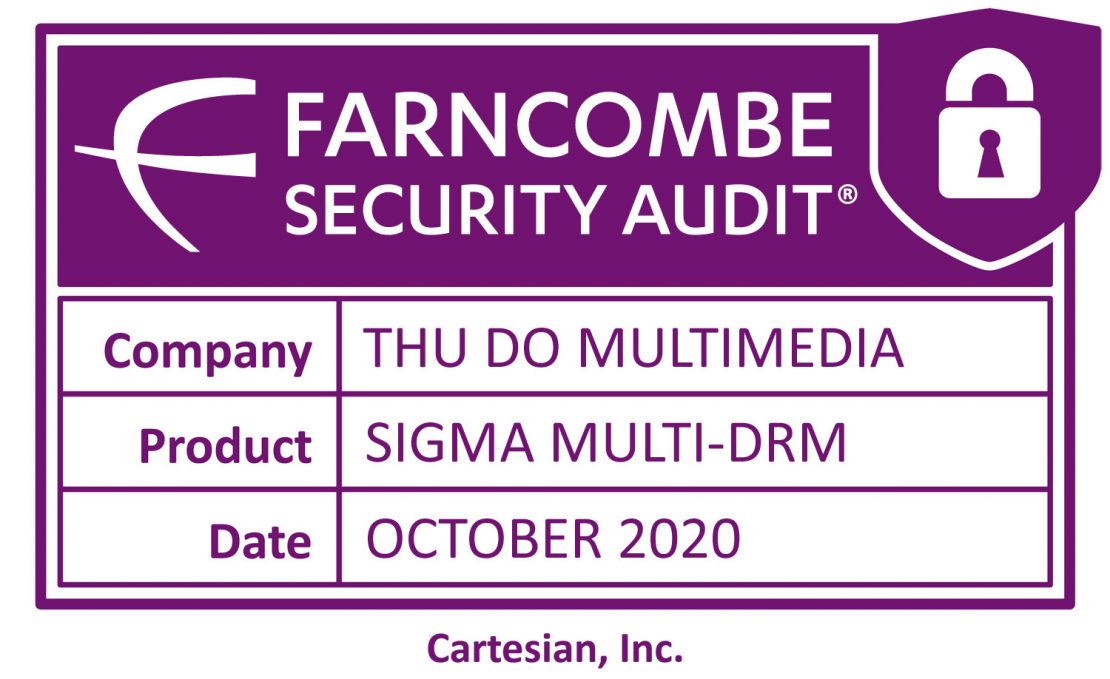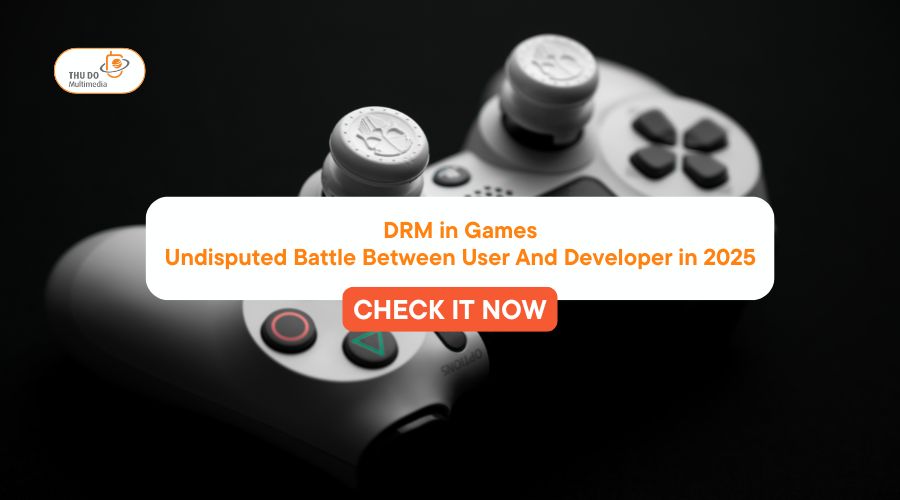As the games industry continues to expand and innovate, understanding the complexities of DRM technologies, their impact on their distribution, and the ongoing debate between security and user experience is critical. This article delves into the various aspects of DRM in games, examining its importance, technological advances, and finding the optimal balance between protecting developer rights and maintaining player satisfaction.
The master of protection
DRM – the guard of your creation
Digital Rights Management (DRM) refers to a set of technologies used to control the use, modification, and distribution of digital contents. DRM aims to prevent piracy by ensuring that only authorized users can access and play the game.
This is critical for the gaming industry, which suffers significant revenue losses due to illegal copying and distribution of games. By implementing DRM, game developers can protect their intellectual property, ensuring that they receive fair compensation for their work. This, in turn, supports the development of new and innovative games.
Undenied Impacts of DRM
DRM plays a crucial role in protecting game developers’ intellectual property by embedding security measures within the game software. These measures can include encryption, online authentication, and anti-tamper technologies that make it difficult for unauthorized users to access or distribute the game, stopping them from stealing content online.
By preventing piracy, DRM helps developers recoup their investment in game development, incentivizing them to create more content and push the boundaries of game design and technology. Without DRM, the financial viability of many projects could be jeopardized, potentially stifling innovation and reducing the diversity of games available to consumers.
Read More: Camera Hacker Prevention Solution
Evolution of DRM in the Gaming Industry
Historical Overview
DRM has evolved significantly since its inception. Early methods included physical dongles and simple key-based systems. As internet access became more widespread, online activation and verification systems were introduced. The rise of digital distribution platforms like Steam marked a significant shift, with more sophisticated DRM technologies being implemented to protect digital game libraries. Over the years, the gaming industry has seen numerous DRM strategies, each with varying degrees of success and acceptance by the gaming community.
Innovations and Advancements in DRM Technology
Over the years of development and optimization, DRM solutions have had many improvements to serve copyright protection needs such as:
Denuvo
Denuvo is a highly effective anti-tamper technology that has become a standard in AAA game releases. Denuvo’s technology makes it significantly harder for hackers to crack games, providing strong protection during the critical release window. You can see most of the game nowadays, including Red Dead Redemption are incoporating this technologies into their gameplay.
Cloud-Based DRM
Leveraging cloud services to manage game licenses and user authentication. Cloud-based DRM can provide more flexibility and security by storing sensitive information on remote servers rather than on the user’s device.
Blockchain
Exploring the use of blockchain for secure and transparent digital rights management. Blockchain technology offers the potential for decentralized DRM systems, which could provide greater security and transparency for both developers and users.
A whole lot of technologies
The gaming industry employs a variety of DRM technologies to secure their products. Common DRM methods include online activation, serial keys, hardware-based protection, and software encryption. Each of these technologies has its own set of features designed to verify the authenticity, ensure it is being used in accordance with the terms of the license. Some of the most widely used DRM technologies in gaming include:
Online Activation
Requires the game to be activated through an online service, linking the game to a specific user account or device. Which pretty mean that you only able to play if you’re paying for it.
Serial Keys
Involves unique keys that must be entered to activate the game, often combined with online verification to ensure the key has not been used multiple times. Furthermore, on some special solution, the key can be change gradually to furthermore protect the game.
Hardware-Based Protection
Uses specific hardware components, such as dongles, to verify the game’s legitimacy. This method is less common in modern gaming but is still used in some specialized applications.
Software Encryption
Encrypts the game’s files, making it difficult for unauthorized users to access or modify the content. This method is often used in combination with other DRM technologies to provide multiple layers of security.
DRM Policies on Major Platforms
Real Practice of DRM you didn’t know about
Major gaming platforms each have their own DRM policies and practices designed to protect games and ensure a fair distribution of digital content:
STEAMWORKS
Steam actually uses a combination of online activation, software encryption, and account-based access.
Steam’s DRM system, also known as STEAMWORKS, provides a suite of tools for developers to protect their games, distribute and manage their product on the market.

PlayStation Network
Employs a mix of online verification, content licenses tied to user accounts, and hardware checks. Games purchased through the PlayStation Network are linked to the user’s account and console, preventing unauthorized distribution.
Xbox Live
Implements similar DRM measures as PlayStation, with a focus on online authentication and digital licenses. Xbox Live requires users to connect to the internet periodically to verify their game licenses in order to play the game.
Nintendo eShop
Officially, in 2022, Denuvo is coming to Nintendo Switch games in an attempt to block users from emulating games on PC.
Relies on user account linking and online checks to manage game access. Nintendo’s DRM system ensures that digital purchases are tied to the user’s account and specific hardware, which can complicate game sharing and reselling on PC.
Real implementation, real results!
In fact, there have been many cases where game developers have applied DRM solutions to protect game content copyright and achieved many remarkable results. Here are some of the most notable result around implementation of DRM:
Steam
Its combination of user-friendly features and robust security measures has made it a leading digital distribution platform. Steam’s approach to DRM, including features like offline mode and family sharing, has helped balance security with user convenience.
GOG.com
Known for its DRM-free approach, GOG.com has built a loyal user base by prioritizing user rights and accessibility. By offering DRM-free games, GOG.com has attracted users who value ownership and the ability to play their games without restrictions.
Ubisoft
Ubisoft has refined its DRM strategies over time, balancing security with user experience through continuous feedback and iteration. Ubisoft’s implementation of flexible DRM policies, such as removing DRM from older titles, demonstrates a commitment to customer satisfaction.
User Experience and Implications of DRM on Different Gaming Platforms
The user experience of DRM can vary greatly across different gaming platforms. On Steam, users appreciate the convenience of cloud saves and game library management, but may be frustrated by the need for constant online activation.
PlayStation and Xbox users benefit from robust online ecosystems, but DRM-related restrictions on game sharing and resale can be contentious. Nintendo’s DRM can sometimes lead to issues with accessing digital purchases across multiple devices, affecting user satisfaction.
Each platform’s approach to DRM has its own set of trade-offs between security and user convenience. Some users may find the DRM measures to be an acceptable compromise for the benefits provided, while others may view them as overly restrictive.
Read More: DRM Software: A Boon for Content Creators, or a Bane for Users?
Impact of DRM on Distribution, Piracy Prevention, and User Access
The Bright Side of DRM
DRM significantly impacts game distribution by enabling digital platforms to control the access and distribution of games. It aids in piracy prevention by making it challenging for unauthorized copies to function correctly. However, DRM can also affect user access, sometimes causing legitimate users to experience difficulties, such as needing a constant internet connection for offline games or facing compatibility issues with certain hardware. The effectiveness of DRM in preventing piracy is a subject of ongoing debate.
While it can deter casual piracy, determined hackers often find ways to circumvent these protections. Moreover, DRM can sometimes lead to negative user experiences, such as difficulties in accessing purchased games or performance issues caused by the DRM software itself.
The Challenges approach!
Although serving the noble need to protect the game and the publisher’s intellectual property, DRM also leaves many mixed opinions in the community, such as:
Consumer Rights
Critics argue that DRM can infringe on consumer rights, limiting how and when users can access purchased content. Some DRM systems restrict the ability to resell or lend games, which can be seen as unfair by consumers.
Technical Issues
DRM systems can cause technical problems, such as game crashes or performance issues. These problems can arise from the additional software required for DRM or from conflicts between the DRM system and the user’s hardware or operating system.
DRM services often run in the background and consume device resources such as RAM… affecting the gaming experience of consumers. Base on how the system work, even high-performance devices still cannot minimize this delay, and it is even more absurd on low-end devices.
Whether or not copy protection applications affect performance is also a hot topic of discussion online. Typically on Reddit, when gamers hated Denuvo because their DRM caused performance issues for their games.
Usage Tracking
DRM systems often track how players use the game, including how much time they spend in the game. This information can be used to apply time limits or other restrictions, and user hate that they can’t spend more time with their game.
Take World of Warcraft for example, this massively multiplayer online role-playing game (MMORPG) has had many time limits in the past, such as daily quest limits and raid locks. These restrictions are designed to prevent players from overloading the game’s servers and encourage them to spread out their playtime.
As a result, players are more likely to use a version without DRM to bypass these issues, simply cracked or piracy app as a better substitute.
Piracy vs. User Experience
While DRM aims to combat piracy, overly restrictive measures can alienate legitimate users, leading to negative reviews and decreased sales. Finding a balance between preventing unauthorized use and providing a seamless experience for paying customers is a major challenge for the industry.
The on-going solutions
For user
For consumers, there are many ways to solve the DRM problem. The simplest is to use software that supports free games today. Many applications such as Steam, Epic Game, Humble Bundle or GOG mentioned above, all provide free games without any interference from copyright protection solutions. Therefore, players can freely use them without worrying about the system being stalled by DRM.
For users with higher demands for using famous copyrighted games such as Black Myth WuKong, Resident Evil, … using pirated and cracked versions of the game is a form of assisting in copyright and digital content theft. Use official versions published on game distribution platforms to support developers and ensure the most realistic and smooth gaming experience.
For game publishers and developers
Consumers are very price-sensitive, and price issues are always the reason why games are pirated so much nowadays. Therefore, as a game developer and distributor, they must have monthly promotions and discounts and special holiday offers to encourage players to buy their products.
And in terms of management, using optimized and high-performance rights software like Sigma DRM is also a very important priority. Using quality solutions will ensure the safety of digital content and prevent illegal piracy of game on all platform.
Introducing Sigma DRM for Games Publisher
As the gaming industry continues to thrive with the challenges of traditional DRM, innovative solutions like Sigma DRM offer a way forward. Developed by Thu Do Multimedia, Sigma DRM provides a comprehensive and adaptable DRM solution tailored for game publishers. It combines robust security features while still maintaining user smooth experiences, ensuring that games are protected without compromising player satisfaction.
By leveraging advanced technologies and user-centric design, Sigma DRM represents the next step in effective and user-friendly DRM implementation. Thu Do Multimedia’s solution integrates seamlessly with various platforms, offering flexibility and robust protection to meet the diverse needs of game publishers and developers.
Sigma DRM – The unbreakable shield
The Digital Sea
A vast expanse, where treasures deep reside,
Digital contents, where the secrets hide.
But pirates lurk, with greedy eyes,
On their tippy toes, and bad desires.
But uh-oh, “NOT ON MY WATCH!”
Our greatest hero has arrived!
He carry on your wishes and rights
Protecting your treasures, no matter the size
Sigma DRM, the captain, dedication and light
Defending your assets, see eye on eye.
By Thu Do Multimedia
Sigma DRM solution is considered an exclusive solution, only available at Thu Do Multimedia (Vietnam), leading in the field of digital content management and protection when released. Digital Rights Management (DRM) is a technology that can help protect copyrighted content from unauthorized access, distribution, or modification. By implementing Sigma DRM, game producers can significantly reduce the risk of copyright infringement, helping to secure the work of each individual and allowing them to share with people they want to.
From the stage of content production at the studio to the time of display on users’ devices is a long journey, with many risks of leakage and copyright infringement at any time. Sigma DRM is the solution to help businesses escape the fear of having their intellectual property rights violated.
After going through many steps like that, copyright can hardly be absolutely protected without a timely and comprehensive protection solution. Although businesses can use many different solutions at each stage, the problem of optimization and ensuring the highest security is always a challenge that needs to be solved.
Each current DRM solution is usually only optimized on certain platforms. The combination of many different methods will help increase overall security. Sigma DRM is completed and achieves 100% security accuracy, which is also considered a comprehensive difference compared to other competitors, stopping illegal game uploads and piracy from appearing once and for all.
Learn more: DRM solutions management media content
How Sigma DRM solution protect your gaming creation

Sigma DRM in game will encode – package your files before release. The solution ensure that users can only access and use them in accordance with established terms and conditions.
Furthermore, Sigma DRM solution can be apply through multiple stages of gaming transferring.
- Allows to control the access and distribution of gaming application.
- Prevent the piracy and illegal distribution of game.
- Diverse business models
When quality meet standards
Thu Do Multimedia’s Sigma DRM solution is certified. Many leading Vietnamese and international studios and production houses choose Sigma DRM as their leading solution for managing their intellectual property. However, some regions or countries require compliance with specific security standards, and relying on a single solution may not be enough to meet these requirements.
Through more than 14 years of development and constant service innovation, we can proudly said that our products have continuously improved and gained a foothold in the international market. Especially, in December 2019, the Sigma DRM solution to protect digital content copyright with the commercial name Sigma DRM of Thu Do Multimedia Joint Stock Company (Thu Do Multimedia) was inspected and certified by Cartesian to meet international security standards. Cartesian is an organization specializing in inspecting security products in the world.


Learn about our project: Ra mat he sinh thai ban quyen am nhac truc tuyen MCM
The Future of Game and Sigma DRM
Future Trends and Predictions for DRM in Gaming
The future of DRM in gaming is likely to see increased integration with cloud services, improved balance between security and user convenience, and potential adoption of blockchain technology for enhanced transparency and security.
As gaming platforms continue to evolve, DRM technologies will need to adapt to new distribution models and consumer expectations. Innovations such as AI-driven DRM systems that can dynamically adjust security measures based on user behavior and machine learning algorithms to detect and prevent piracy more effectively are also on the horizon.
Sigma DRM – Together towards the future!
As businesses operating in the game industry continue to thrive in the future, Sigma DRM will also have more opportunities to assert itself in the international market. Thu Do Multimedia will always try to improve Sigma DRM solution to keep up with the trends of the market and still maintain the goals and directions of our business:
Effective copyright protection
Sigma DRM will always prevent unauthorized copying and sharing of digital music, protecting the rights of users and game developer.
Transparent distribution
Sigma DRM ensures transparency in the distribution process, because it is essential for building trust and fostering a healthy gaming market, both for user and game developers.
Creating and nurturing a healthy digital gaming market:
By protecting copyright and making the distribution process transparent, Sigma DRM contributes to building a healthy gaming market. We will cooperate and secure that no leakages or illegally copy of game are able to appear on the market ever again.
Conclusion
DRM in gaming is a complex and evolving field, balancing the need for security with the imperative of a positive user experience. While DRM technologies have come a long way, the industry continues to face challenges and controversies.
By adopting innovative solutions like Sigma DRM from ThuDo Multimedia, game publishers can protect their intellectual property while ensuring that players enjoy seamless and satisfying gaming experiences. As the gaming landscape continues to evolve, effective DRM strategies will be crucial in shaping the future of the industry.
If you have any question prior to our product- Sigma DRM, please leave your contact below and we will be answering as soon as possible


Recent Comments